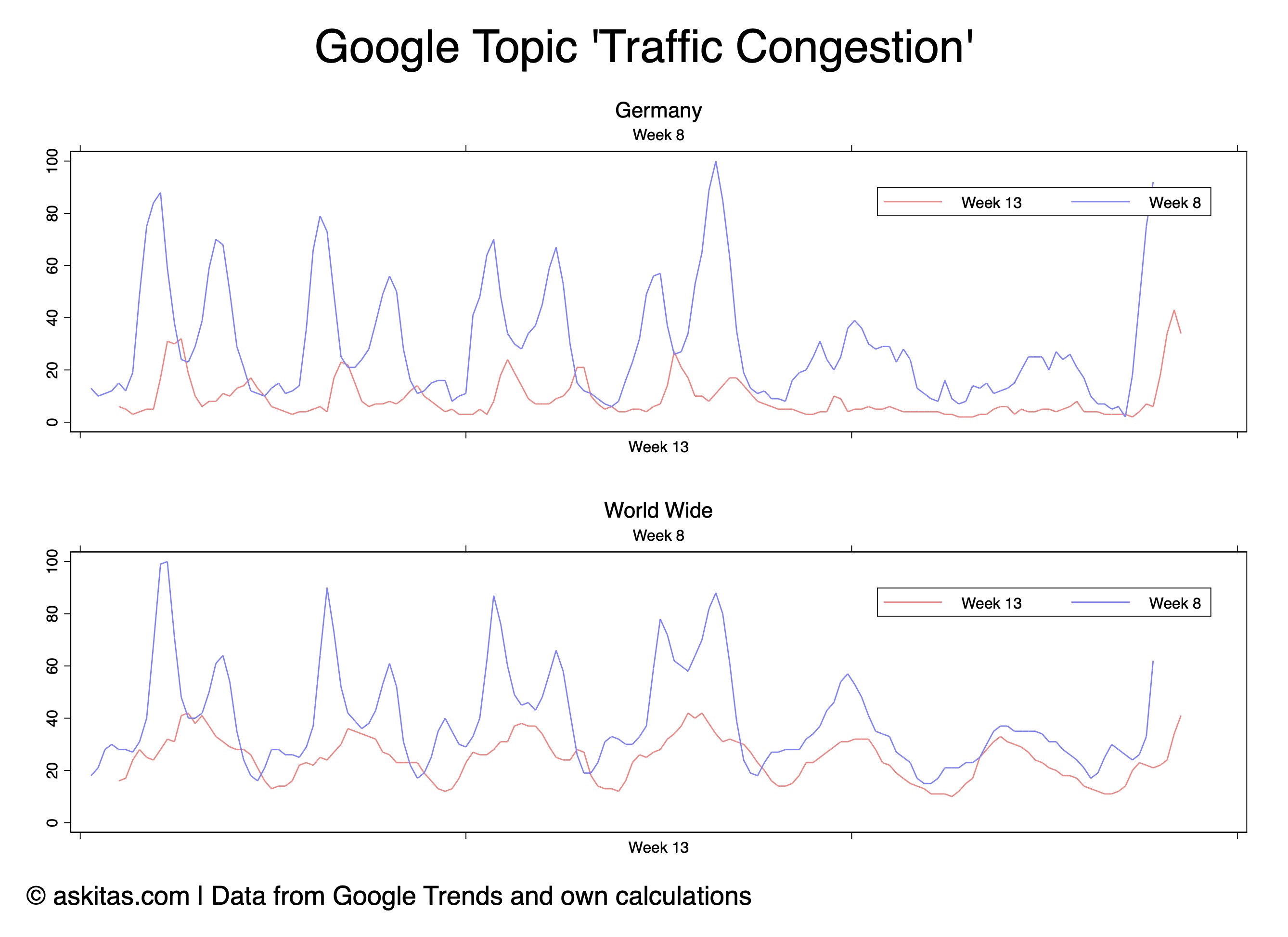
Before the coronavirus pandemic nobody wrote the words “social” and “distancing” in the same Google search query. Now there is a Google topic called “social distancing,” and since March 9 as much as about 20% of all search queries which contained the word “social” also contained the word “distancing” in the US. Similarly, with “rules” and “lock-down.”
In fact, chances are that as you are reading this you are in some form of lock-down, and most certainly you are practicing some form of telecommuting. I previously studied the regularity by which Germans log Google search queries containing the word “Stau” (traffic jam). Such data can thus be used to predict road congestion. The figure here compares hourly Google searches in Germany and worldwide in weeks eight (blue) and 13 (red) of 2020. The data correlate well with my experience that driving on German highways has been much more pleasant lately. Similarly, there is about a 60% reduction in flights worldwide.
On the other hand, global Google search interest in “telecommuting” has had an eight-fold surge in the last several weeks compared to the same time last year. As a result, “traffic jams” moved from the road to the internet, a fact which has led Netflix and Youtube to lower video quality in Europe in order to not overload infrastructure. In the weeks ahead, as more and more people join the ranks of home-office workers (not every socioeconomic entity was able to respond as quickly to the coronavirus shock), we might see the investment gap in web infrastructure exposed.
The coronavirus pandemic is already impacting the labor market worldwide: Google searches for the topic of “unemployment benefits” jumped ten-fold globally in the last several weeks, compared to the same time last year. In the US from March 14, 2020, to March 21, 2020, there was a surge of 1100% in initial unemployment insurance claims.
The air quality index in Delhi, India, also fell from 214 to 65. (A reading below 50 indicates good air quality, moderate between 100 and 200, and poor air quality if the reading is above 200). However, to make the argument that less driving and less flying will benefit the planet one must consider the facts that telecommuting and the digital technology it uses run on large farms of servers operating 24/7 and increase the use of electricity. So, the net effect on air quality and the environment is an interesting research question, with the result currently quite unclear.
© Nikos Askitas
Nikos Askitas is the IZA's Coordinator of Data and Technology
Read more on the coronavirus crisis:
"Coronavirus and the labor market," by Daniel S. Hamermesh
"Fighting a coronavirus recession," by Daniel S. Hamermesh
"Pandemics and the labor market—Then and now," by Karen Clay
"Pricing the lives saved by coronavirus policies," by W. Kip Viscusi
"Health effects of the coronavirus recession," by Christopher J. Ruhm
"The long-term consequences of missing a term of school," by Simon Burgess and Hans Sievertsen
Please note:
We recognize that IZA World of Labor articles may prompt discussion and possibly controversy. Opinion pieces, such as the one above, capture ideas and debates concisely, and anchor them with real-world examples. Opinions stated here do not necessarily reflect those of the IZA.